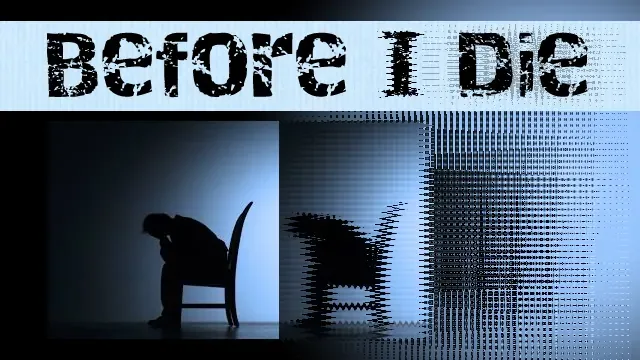Before I Die is a fictional story of the last few days of a man meeting his death. It is my first complete novel and I decided to share it here in the form of chapters.
You can read previous chapters by clicking the links below
Chapter 1: The Calm Before The Trial

In our country, the procedures usually proceed swiftly after the confession in murder cases, more than in minor cases. The focus here is on appeasing the people, not on justice. Therefore, it took only a few weeks until a trial date was set for "the confessed killer, Youssef!" Yes, that's what the newspapers wrote, reporting that the killer confessed and betrayed his friend. The newspapers didn't mention the "deception" of the victim, as the sanctity of the dead should be respected, even if they were wicked. This is how our reality-bound media takes us back to the medieval ages with the mentality of some influential individuals therein.
The trial proceedings for Youssef in the branch court continued, and when he claimed that his confession came under torture without any evidence to prove it, there were two reasons why that wouldn't hold: first, because one cannot determine if an individual had not slept for a month or slept well afterwards, as sleep deprivation affects one's ability to regulate their mind and suppress all physical traces. Second, the forensic doctor, who is chosen and paid for his work, wouldn't go against the police's expectations beyond the usual scope, as it would affect his income.
Mohammed's wife came and wept bitterly before the judge, accusing Youssef of killing her husband. With the confession's unreliability and the absence of proof for the killer's claim that he didn't sleep during the interrogation, the verdict became clear. What further complicated Youssef's situation was that the confession system in this manner was more like espionage tactics than an honest system, making his claim appear false to the judges.
Days passed in the branch court without anyone believing Youssef, not even Mohammed's wife. Finally, the day of the final hearing and verdict arrived. Everyone was in anticipation, while Youssef was terrified, appearing in the defendant's dock and looking at his relatives whose faces were filled with sorrow. The judge entered and asked for silence before pronouncing the verdict, which had many preambles. But Youssef only cared about one sentence: "Death penalty for the killer Youssef, in the interest of justice."
Youssef received the verdict with a cold reaction that no one expected. When someone anticipates an outcome for so long, the actual occurrence doesn't affect them. Youssef had anticipated his execution since the first day he stepped into the interrogation rooms. He put on a smirk on his face—a smirk that reflected the internal collapse he was experiencing. Even if he tried to display a sign of strength, his inner psyche had crumbled. What claim led to our psychological collapse when we faced injustice?
The police officer standing beside him looked at him with surprise and whispered, "Smirking?"
Youssef, still smirking, replied, "Yes, I am unjustly treated, and I learned here that crying and wailing won't support you, only cunning and deception will. Not every victim is innocent, and not every rightful claimant finds justice. Rather, the most cunning ones survive within our flimsy systems."
The police officer asked, "What does that have to do with smirking?"
Youssef, smirking even more, said, "Nothing."
Police: "Are you starting to lose your manners now that you know your fate?"
Youssef realized that the police officer misunderstood him and thought he was proud of himself, so he said, "I'm sorry, but do you see that woman over there?"
And Youssef pointed at her with his eyes without her noticing.
Police Officer, after looking: "Yes."
Youssef: "That's Mais."
Police Officer: "Your wife?"
Youssef: "No, but she is the most influential person in my life. It was a refined love, and I haven't seen her since our connection."
Police Officer: "And what brought her here now?"
Youssef: "I don't know. Probably the press. They mentioned yesterday publicly that I belong to a prominent family. You know that the press here likes to mention the first letters of names if you belong to a powerful dynasty or an influential family. And if you come from a small family like mine, they won't hesitate to publish your cousin's name alongside yours."
Police Officer: "Does that mean you know she still cares about you?"
Youssef: "Absolutely. That's why I smirked. I'm going towards death, and I feel that this is the only story where I failed to be successful as I expected."
As Youssef finished speaking, the police commander's assistant interrupted the court proceedings by bringing in the criminal who was accused just minutes ago. Youssef calmly walked out, and the police officer smirked at him and said, "The living triumphs in battles, but unfortunately, death determines things at the end of wars."
Youssef looked at Mais as he exited and found her crying more than all his relatives. He smirked at her, and she smirked back, continuing to shed tears.